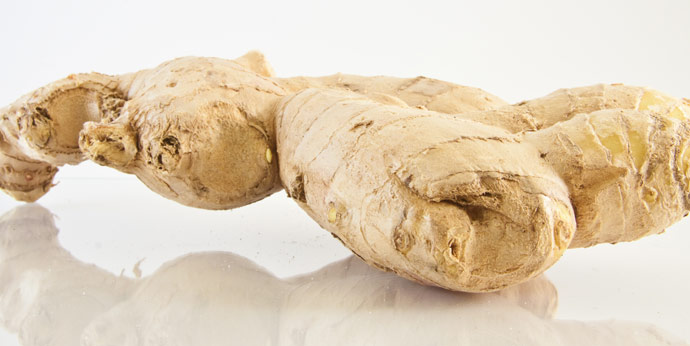 Did you know that ginger is considered an erect perennial herb? Native to Asia, India, and China, ginger has been popular in these regions for thousands of years, where it was valued for its aromatic, culinary, and medicinal properties. Ginger grew in popularity in Renaissance Europe, where it was thought to prevent the plague, and was present at every table setting as salt and pepper is today.
Did you know that ginger is considered an erect perennial herb? Native to Asia, India, and China, ginger has been popular in these regions for thousands of years, where it was valued for its aromatic, culinary, and medicinal properties. Ginger grew in popularity in Renaissance Europe, where it was thought to prevent the plague, and was present at every table setting as salt and pepper is today.
Health Benefits:
- Historically, ginger has been very effective at alleviating symptoms of gastrointestinal distress.
- Ginger contains a compound called gingerols, which acts as an anti-inflammatory, and has been shown to effectively treat osteoarthritis, and rheumatoid arthritis.
- Scientific studies have shown ginger to possess therapeutic properties including carminative and intestinal spasmolytic effects, antioxidant effects, and the ability to inhibits the formation of inflammatory compounds.
- Currently, studies are being conducted that show ginger’s ability to prevent motion sickness.
- Ginger has been shown to be an effective treatment for nausea and vomiting associated with pregnancy.
For centuries, ginger has been regarded as an essential ingredient in many Eastern cuisines. As it gained popularity in other parts of the world, ginger’s flavor has leant itself to many American favorites such as ginger ale and gingerbread. Consider making a ginger tea by boiling ginger in hot water, and adding orange or lemon to taste. Adding ginger to fresh fruits can be a great way to incorporate it into your daily menu.



